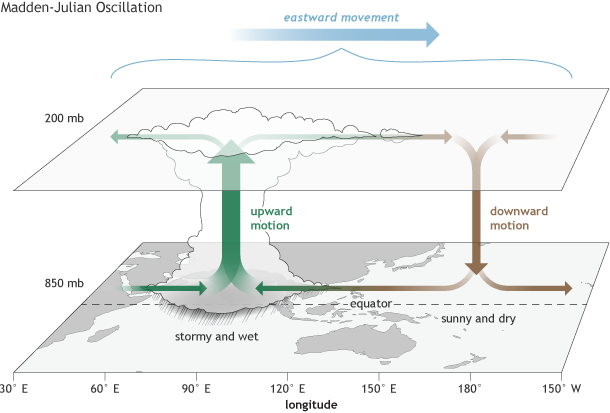-
Madden-Julian Oscillation, discovered in the 1970s, starts when water vapor rises out of the Indian Ocean every 30 to 60 days to create a major ocean storm that travels west to east from near Seychelles off Africa toward India, crosses into the tropical Pacific Ocean and eventually affects weather patterns across America.
-
The MJO can be characterized as an eastward moving “pulse” of cloud and rainfall near the equator that typically recurs every 30 to 60 days and is a feature of the tropical atmosphere.
-
MJO effects are most evident over the Indian Ocean and western equatorial Pacific.
-
It influences the timing, development and strength of the major global monsoon patterns, including the Indian and Australian monsoons.
-
In 1971 two scientists, Roland Madden and Paul Julian stumbled upon a 40-50 day oscillation when analysing zonal wind anomalies in the tropical Pacific.
-
They used ten years of pressure records at Canton south of Pacific and upper level winds at Singapore.
-
The oscillation of surface and upper-level winds was remarkably clear in Singapore which became known as the Madden and Julian Oscillation (MJO).
